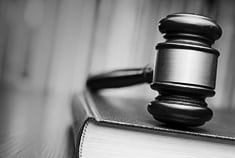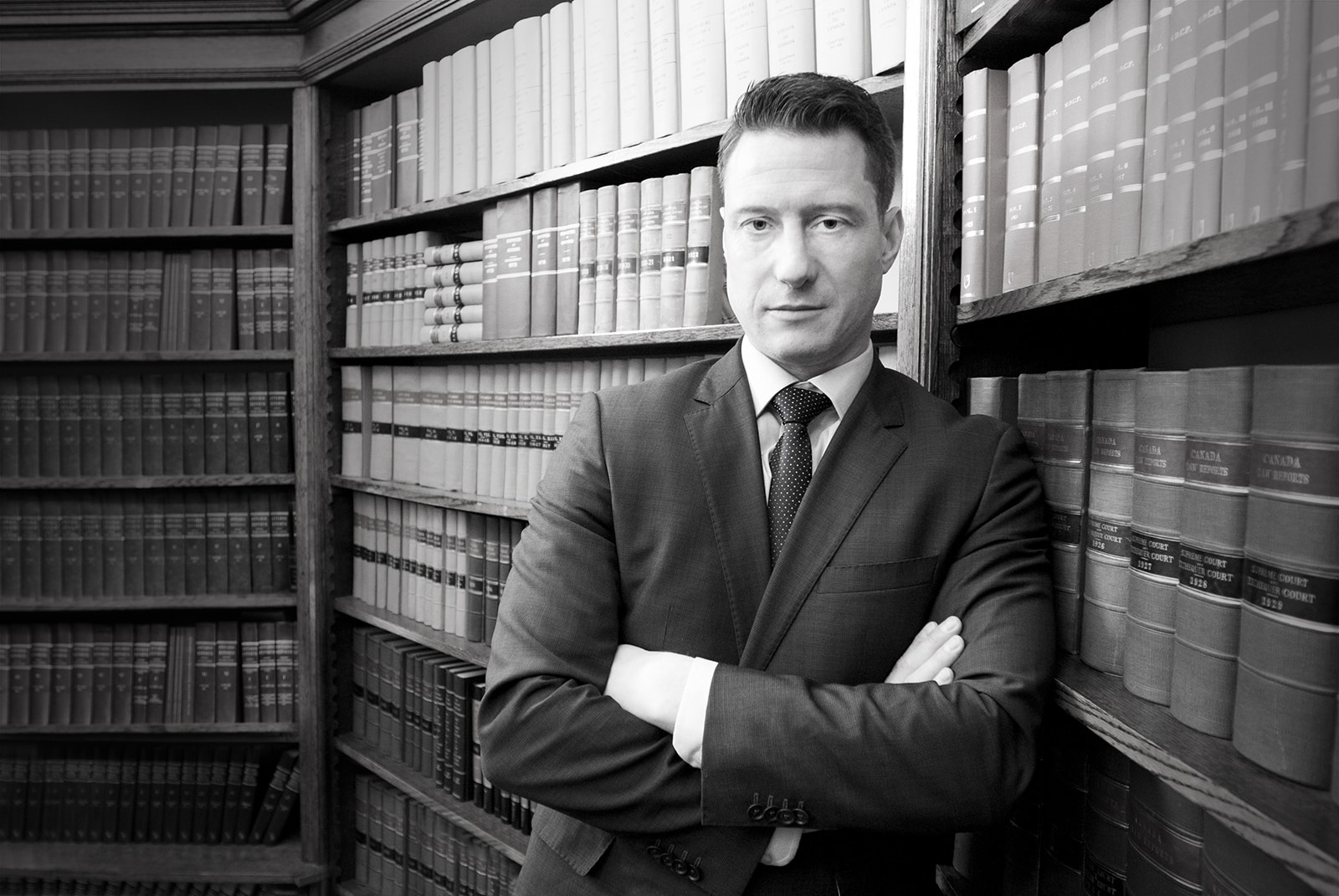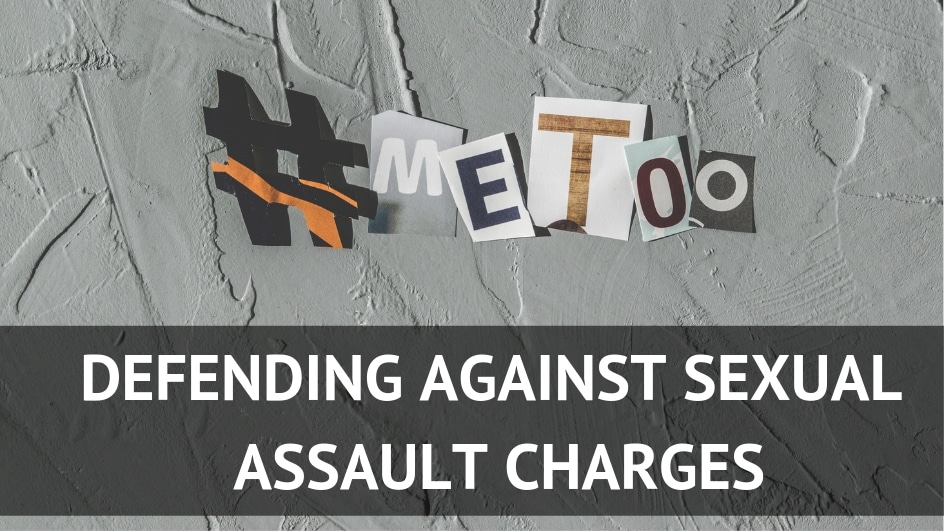 Defending against sexual assault charges is becoming increasingly difficult in the #metoo era. In fact, there have been a number of incremental legislative amendments and other changes in the law over the years that make defending against allegations of sexual assault more difficult than other charges. Many people are not even aware of these changes and express shock and disbelief about the restrictions on what they can do to defend themselves after they have been charged. For this reason, defending against sexual assault allegations is one area of criminal law where it is strongly recommended to retain a criminal lawyer experienced in defending charges of this nature.
Defending against sexual assault charges is becoming increasingly difficult in the #metoo era. In fact, there have been a number of incremental legislative amendments and other changes in the law over the years that make defending against allegations of sexual assault more difficult than other charges. Many people are not even aware of these changes and express shock and disbelief about the restrictions on what they can do to defend themselves after they have been charged. For this reason, defending against sexual assault allegations is one area of criminal law where it is strongly recommended to retain a criminal lawyer experienced in defending charges of this nature.
Facts about defending against sexual assault charges
Here are a few facts about the criminal offence of sexual assault of which many people are unaware:
Sexual assault is broadly defined
Sexual assault is broadly defined. Under the Criminal Code, a sexual assault is an assault that violates the sexual integrity of another person. A person commits an assault when, among other things, without the consent of another person, he or she applies force intentionally to that other person, directly or indirectly. When such applied force violates the sexual integrity of the other person the assault is a sexual assault. Although the intention of the accused person is a factor that may be considered when determining whether an assault is a sexual assault, it is only that: a factor. The focus is on the sexual integrity of the other person. To the surprise of many, sexual assault includes far more actions than “rape”. There are many acts that could constitute a sexual assault, including kissing, patting on the bum or breasts or even sensually touching any part of another person’s body without their consent.
There is no such thing as “Implied Consent”
There is no such thing as implied consent. Clients are often genuinely shocked to learn that just because the complainant didn’t say no doesn’t mean the complainant consented to the sexual activity that forms the subject nature of the charge. Whenever engaging in sexual activity, it is imperative that each participant ensure that each of the other participant(s) is consenting to the sexual activity. No consent is (or can be obtained) where the complainant is incapable of consenting to the activity. This includes situations where a complainant is sleeping or is intoxicated by alcohol or other drug to the point where they are incapable of consenting. A person’s consent can be withdrawn at any time and for any reason. This seems counterintuitive to many clients who claim that it is a buzzkill to have to take measures throughout a sexual experience to ensure the other party is consenting. Consent does not have to be given in words (although that is the surest way to confirm another party is consenting) but does need to be express and not merely implied based on the circumstances. Although there is a defence of honest but mistaken belief that the complainant consented (which see below), that defence is not always available, and is only available under certain conditions.
No corroboration of sexual assault is required for a conviction
No corroboration is required. The criminal code expressly provides that no corroboration is required in order to secure a conviction for sexual assault. This means that an accused person can be convicted SOLELY on the testimony of a complainant at trial – even if no other evidence is introduced – if the trier of fact (judge or jury) is convinced of the accused’s guilt beyond a reasonable doubt based on whatever evidence is introduced at trial.
 DNA evidence may or may not be helpful
DNA evidence may or may not be helpful
DNA evidence may or may not be helpful. Some clients believe, based in part on a misunderstanding of media reports, that DNA evidence will definitively determine the guilt or innocence of an accused person. They say, “if there is no DNA evidence, then I cannot be convicted,” or “if DNA evidence is found at the scene then it is a certainty that I will be convicted.” Neither statement is correct. While DNA evidence has often been used in the past to convict or acquit accused persons, it must be remembered that DNA evidence is what it is (and nothing more) and its presence at the scene of an alleged crime may be explainable. Furthermore, studies have shown that DNA evidence has limitations and, in some cases, its reliability can be contested. This often requires expert evidence to be introduced at trial.
 Evidence that the complainant has engaged in other sexual activity can’t be introduced without a court order
Evidence that the complainant has engaged in other sexual activity can’t be introduced without a court order
The accused cannot introduce evidence that the complainant has engaged in sexual activity without a court order (“other sexual activity”). In addition to sexual intercourse, other sexual activity includes text messages, sensual pictures, kissing and other forms of sexual activity, including between the accused and the complainant. Any other sexual activity involving the complainant that an accused person seeks to introduce into evidence at trial will only be admitted into evidence if it (a) is relevant to an issue at trial, and (b) has significant probative value that is not substantially outweighed by the danger of prejudice to the proper administration of justice. In any event, evidence that the complainant has engaged in sexual activity will not be admitted into evidence if the purpose of the evidence is to support an inference that, by reason of the sexual nature of that activity, the complainant (a) was more likely to have consented to the sexual activity that forms the subject-matter of the charge; or (b) is less worthy of belief. A separate motion must be made before the trial judge before the trial in accordance with the timing and procedures set out in the Criminal Code. These requirements are strictly enforced, and failure to comply with them often results in the motion being denied.
 Mistaken belief of consent is a valid defence
Mistaken belief of consent is a valid defence
It is a valid defence to have an honest but mistaken belief that the complainant consented to the sexual activity that forms the subject-matter of the charge. However, there are limitations on when this defence is available. Firstly, it is not a defence that the accused believed that the complainant consented to the activity that forms the subject-matter of the charge, where (a) the accused’s belief arose from the accused’s (i) self-induced intoxication, or (ii) recklessness or wilful blindness; or (b) the accused did not take reasonable steps, in the circumstances known to the accused at the time, to ascertain that the complainant was consenting. Secondly, the accused must admit the basic facts being alleged by the complainant. In other words, it is not a defence for the accused to claim “the alleged events did not occur; however, if they did occur then I honestly believed that the complainant consented to the sexual activity”.
The accused cannot access certain records about the complainant without a court order
The accused cannot access or introduce certain records about the complainant without a court order. These records include, among other things, medical, counselling and employment records, as well as personal journals and diaries. In order to gain access to these records and/or introduce them into evidence at trial, an accused must establish that (a) the record sought is likely relevant to an issue at trial or to the competence of a witness to testify; and (b) the production of the record is necessary in the interests of justice. This is a high threshold to overcome, and can never be used as a “fishing expedition” simply to find out more information about the complainant. Usually without having even reviewed the record, the accused must be able to establish that the record exists, generally what is in the record, how the record is likely relevant (and not just because it covers the same or similar subject matter, or contains an inconsistent statement that the accused wishes to introduce into evidence to impeach the complainant’s credibility) and that failure to produce the record would significantly impact the accused’s ability to make full answer and defence. A separate motion must be made before the trial judge before the trial in accordance with the timing and procedures set out in the Criminal Code. These requirements are strictly enforced, and failure to comply with them often results in the motion being denied.
A complainant’s actions after the alleged sexual assault are (mostly) irrelevant
The actions of a complainant after the alleged sexual assault are largely irrelevant. Generally (in cases other than sexual assault), when evaluating the evidence to determine whether an accused is guilty, judges (and juries) will look at the actions of an accused and/or complainant to determine whether their behaviour accords with logic and human reasoning in the context of the evidence. For this reason, in sexual assault cases, many accused persons wish to point to the behaviour of the complainant after the alleged sexual assault occurred as proof that the sexual assault could not have occurred. For example, they point out that the complainant didn’t report the incident for many months (or years), or that the accused and complainant continued to enjoy a happy relationship (sexual or otherwise) after the alleged sexual assault occurred, or that the complainant didn’t appear to have suffered (as would be “expected” of a victim of sexual assault) after the incident and may even have appeared to have excelled (as would not be “expected” of a victim of sexual assault). However, the law has developed, based on expert evidence, such that it is not for the trier of fact to make assumptions about how a victim of sexual assault should or shouldn’t act or respond in the aftermath of a sexual assault. Therefore, the actions of a complainant after an alleged sexual assault are largely irrelevant, except insofar as they discredit the complainant’s own testimony about how or why they acted in a certain manner.
Have you or a loved one been charged with sexual assault?
If you or a loved one has been charged with sexual assault, don’t attempt to navigate these very troubled waters on your own. We are well experienced in defending against allegations of sexual assault and are here to help. Call Hogan Law Firm today.
Share this Page
About Mark Hogan – Criminal Lawyer in Mississauga, Ontario

Mark Hogan defends criminal charges such as Assaults, Domestic Assault, Assault with a Weapon, Aggravated Assault, Sexual Assault, Uttering Threats, Forcible Confinement, Criminal Harassment, Bail Hearings, Drug Production, Drug Possession, Drug Trafficking, Fraud, Impaired Driving, Over 80, Refuse to Provide a Breath Sample, Theft, Robbery, and Breaking and Entering in Southern Ontario including Toronto GTA, Mississauga, Hamilton, Burlington, Milton, Brampton, Newmarket, Ajax, Pickering and Oshawa.
If you have been charged with a criminal offence, call Mark Hogan Criminal Defence Lawyer today for a FREE CONSULTATION! Call (416) 200-7005 (24/7).

